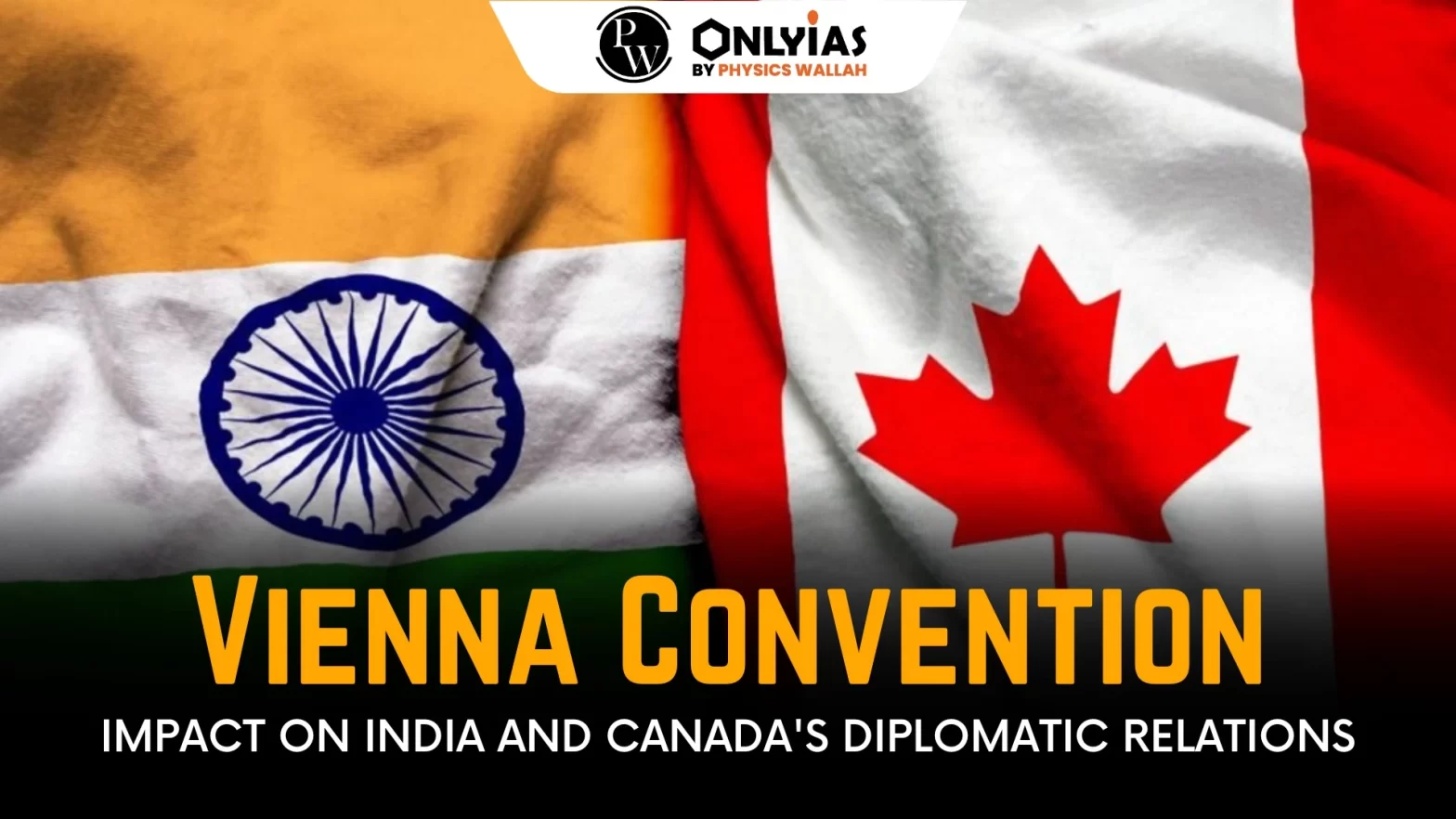![]() PWOnlyIAS
PWOnlyIAS
![]() October 21, 2023 05:20
October 21, 2023 05:20
![]() 3119
3119
![]() 0
0
Context: Canada has pulled out 41 diplomats from India accusing the Indian government of violating the Vienna Convention on diplomatic relations.

| Provision | Description |
| Authority of the Host State (Article 9) |
|
| Inviolability of Mission Premises (Article 22) |
|
| Free communication (Article 27) |
|
| Inviolability of the person of diplomatic agents (Article 29) |
|
| Immunity from Jurisdiction (Article 31) |
|
| Tax and customs exemptions (Articles 34 and 36) |
|
The Vienna Convention has played an important role in a number of international crises, including the Cuban Missile Crisis and the Iranian hostage crisis.
Diverse Vienna Conventions: Roles and Significance in International Law
|
<div class="new-fform">
</div>

Latest Comments